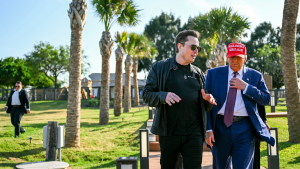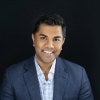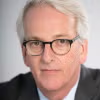Trump's Expansionist Ambitions and Tech Titans' Disruptions
 Play Video
Play Video
About This Episode
In this episode, we unpack the first major global stories of 2025. Donald Trump’s expansionist rhetoric this week toward Canada, Greenland, and Panama reflects his “America First” doctrine and risks violating international law, alienating allies, and deepening global tensions. How serious is he? Meanwhile, tech titans Elon Musk and Mark Zuckerberg stir misinformation controversies. What does Musk hope to gain by targeting European leaders, including UK Prime Minister Keir Starmer, with unverified allegations? And what impact will Meta’s decision to discontinue third-party fact-checking have on democracy? Ravi Agrawal, Susan Glasser, and Philip Stephens join Ivo Daalder to discuss the wild start to 2025 and what, if anything, might surprise them this year.
While we encourage you to watch or listen to the episode (and subscribe wherever you get your podcasts!), these are Ivo's top takeaways from today's discussion:
- We started by discussing the return of 19th century imperialism – or Donald Trump’s threat to seize Panama, invade Greenland, and annex Canada. No, this is not normal. But Trump appears quite serious about his intentions. Susan recounted how she and Peter Baker, while researching The Divider, their terrific book on Trump’s first term, discovered that Trump had been very serious about the possibility of buying Greenland as far back as 2018. At the time, his utterance were dismissed as a joke and largely laughed off. But Trump not only remains serious, there are now fewer people who will oppose his efforts than there were during his first term. Moreover, the repeated insistence that these countries belong in America’s sphere of influence—or even need to be part of the United States—shows that Trump’s America First agenda isn’t the same kind of isolationism that the original America Firsters favored in the 1930s. It’s at the very least a policy that insists not only on keeping foreign influences in the Western Hemisphere out (as the Monroe doctrine did) but extends US control over the entire Hemisphere, to the point of treating Greenland today as Alaska was treated in 1867, when the US bought it from Russia.
- This morning’s Financial Times headline said it all: “Musk examines how to oust Starmer as UK prime minister before next election.” This follows his fawning interview with Alice Weidel, leader of the extreme-right German Alternative für Deutschland, on is own X platform. Having spent $250 million to help elect Donald Trump last year, the world’s richest man seems bent on using his money, power, and social media channel to go after the liberal democratic establishment in Europe in favor of his own brand of right-wing politics. Ravi suggested that that Musk appears to have been influenced by the mis- and disinformation that thrives on X. Absurd stories and made-up nonsense seem to drive Musk’s torrent of engagement—and propel his anti-democratic efforts to oust elected leaders and promote parties that have been rejected by the political establishment as too extreme. With Mark Zuckerberg announcement that Facebook and Instagram will no longer moderate content, the big question for Europe, Philip noted, was whether Trump will use America’s influence to seek and curtail content moderation regulations in the UK and European Union—threatening tariffs and other punitive measures unless these laws and regulations are taken down. We’ve of course been here before, with big business barons using money and influence to get their way. But today’s Tech Moguls seem to be drunk with power, and now have someone in the White House who is more than willing to do their bidding.
That’s it for Ivo's quick takes of this week’s episode. To get the full flavor, please watch or listen to the episode.
Prefer to Listen?







